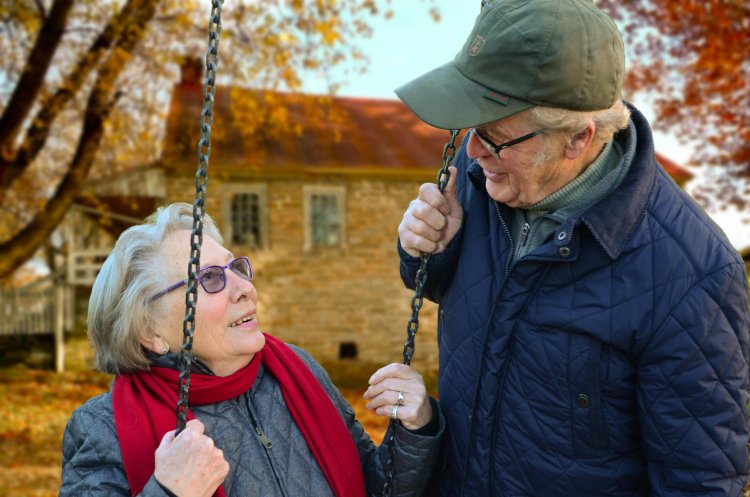Embracing Aging: Navigating the Journey of Geriatric Care
Embracing Aging: Navigating the Journey of Geriatric Care

Table of Contents:
1. Introduction
2. Understanding Aging and Geriatrics: Key Concepts and Considerations
3. Common Age-Related Health Concerns: Addressing Physical and Cognitive Changes
4. Geriatric Assessment: Comprehensive Evaluation for Older Adults
5. Multidisciplinary Care: Collaborative Approach to Geriatric Healthcare
6. Medication Management: Ensuring Safe and Appropriate Prescribing for Older Adults
7. Nutrition and Hydration: Supporting Healthy Aging Through Proper Diet and Fluid Intake
8. Mobility and Fall Prevention: Promoting Independence and Safety in Older Adults
9. Palliative and End-of-Life Care: Enhancing Quality of Life and Dignity in Aging
10. Mental Health and Social Well-being: Addressing Emotional Needs and Loneliness
11. Caregiver Support: Providing Resources and Assistance for Family Caregivers
12. Conclusion
Introduction
Aging is a natural and inevitable part of life, presenting unique challenges and opportunities for individuals and their families. In this blog, we will explore various aspects of aging and geriatrics, covering topics related to physical health, cognitive well-being, and holistic care for older adults.
1. Understanding Aging and Geriatrics: Key Concepts and Considerations:
This section will provide an overview of aging and geriatrics, including the physiological changes associated with aging, common age-related conditions, and the principles of geriatric care.
2. Common Age-Related Health Concerns: Addressing Physical and Cognitive Changes:
Age-related health concerns, such as osteoarthritis, dementia, and sensory impairments, can impacts older adults' quality of life. This section will discussing common age-related health conditions and strategies for managing them.
3. Geriatric Assessment: Comprehensive Evaluation for Older Adults:
Geriatric assessment involves a comprehensive evaluations of an older adult's medical, functional, cognitive, and psychosocial status. This section will exploring the components of a geriatric assessment and it is important in guiding care planning.
4. Multidisciplinary Care: Collaborative Approach to Geriatric Healthcare:
Multidisciplinary care teams, consisting of healthcare professionals from various disciplines, play a crucial role in providing comprehensive and coordinate care for older adults. This section will discussing the benefits of multidisciplinary care and the rolls of different team members.
5. Medication Management: Ensuring Safe and Appropriate Prescribing for Older Adults:
Older adults are at increase risk of medication-related problems due to age-related changes in metabolism and physiology. This section will covering strategies for safe and appropriates medication management in older adults.
6. Nutrition and Hydration: Supporting Healthy Aging Through Proper Diet and Fluid Intake:
Proper nutrition and hydration are essentially for maintaining health and well-being in older adults. This section will providing guidance on promoting healthy eating habits and adequate fluid intake in older adults.
7. Mobility and Fall Prevention: Promoting Independence and Safety in Older Adults:
Mobility issues and falls are commonly concerns among older adults, leading to injuries and reduced quality of life. This section will discus strategies for promoting mobility, preventing falls, and enhancing safety in older adults.
8. Palliative and End\-of\-Life Care: Enhancing Quality of Life and Dignity in Aging:
Palliative and end-of-life care focus on relieving symptoms, managing pain, and providing emotional support for older adults with serious illnesses. This section will explore the principle of palliative and end-of-life care and they roll in enhancing quality of life and dignity in aging.
9. Mental Health and Social Well\-being: Addressing Emotional Needs and Loneliness:
Mental health and social well-being are importantly aspects of healthy aging. This section will discusses strategies for addressing mental health issues, reducing loneliness, and promoting social engagement in older adults.
10. Caregiver Support: Providing Resources and Assistance for Family Caregivers:
Family caregivers play a vital role in supporting older adults' well-being but may experience challenges and stressors themselves. This section will provide resources and assistance for family caregivers, including respite care and support groups.
Conclusion:
By addressing the diverse needs and challenges associated with aging, we can promote health, well-being, and dignity in older adults and ensure that they receive the care and support they deserve as they navigate the journey of aging.
What's Your Reaction?





















